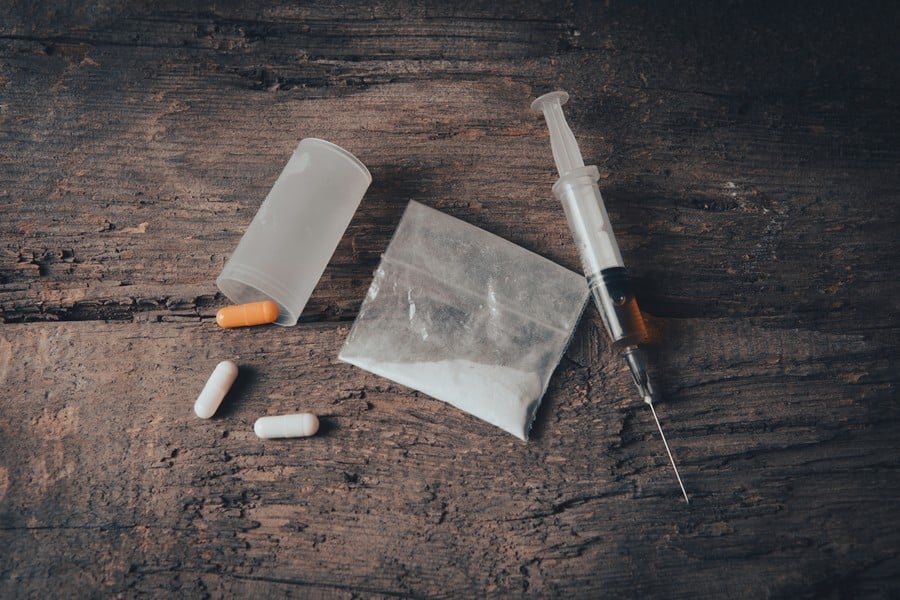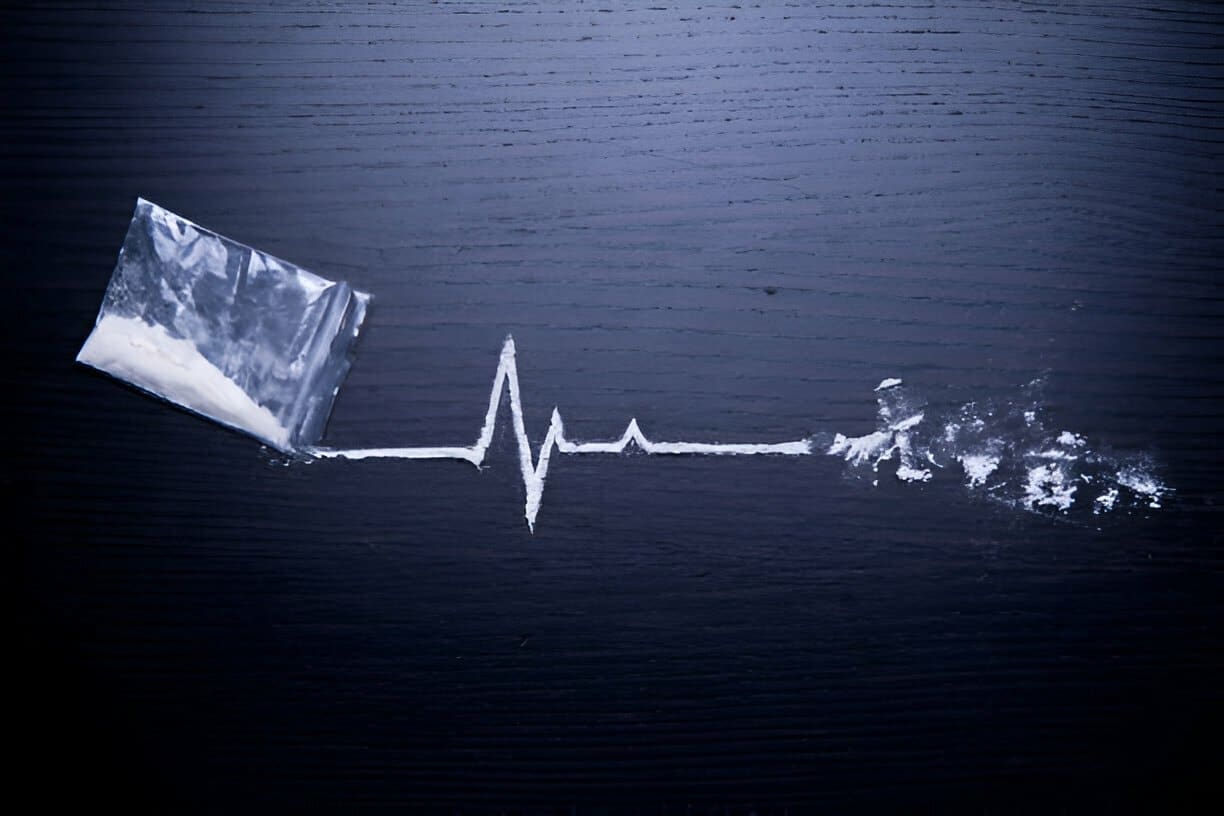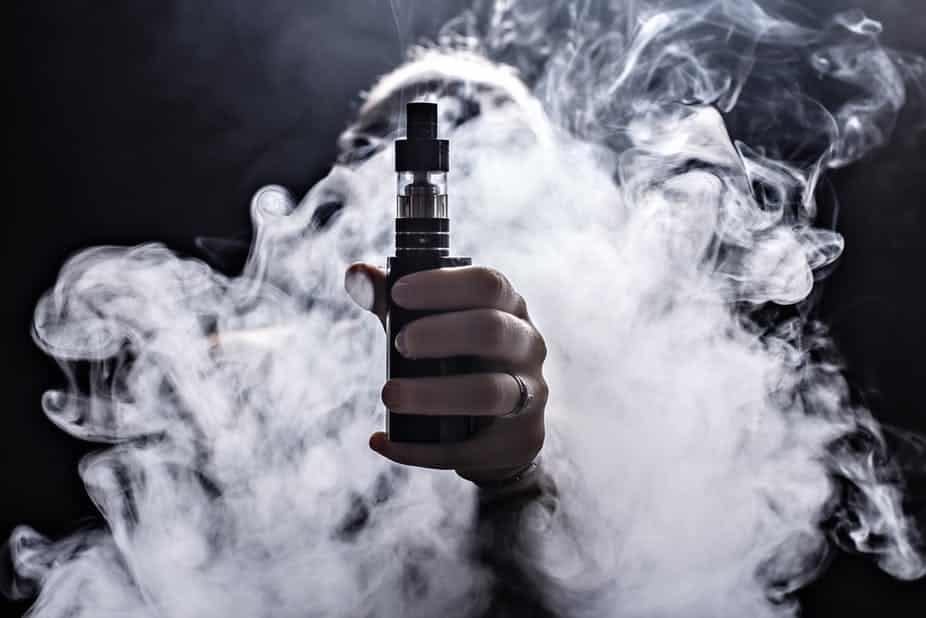Cocaine is a highly addictive, illegal stimulant substance typically inhaled (snorted), injected, or smoked in its freebase form (crack).

Cocaine usage is usually only done occasionally, and most users do not fit the criteria for cocaine addiction. However, given its highly addictive nature, its use frequently spirals out of control.
If your loved one needs support dealing with an Alcohol Addiction, contact us today on 0800 999 1083. We can help you by recommending treatment options.
Cocaine comes in two different forms: the hydrochloride salt and ‘freebase.’ While each type has its own set of actions and consequences, they are both hazardous and addictive.
Cocaine in powdered form is known as the hydrochloride salt. It’s the white crystalline substance you’ve probably seen in magazine images, videos, and movies. The cocaine hydrochloride salt is the ‘line’ of coke that individuals suck from a mirror.
Because the hydrochloride salt is water-soluble, it can be diluted in water and injected, snorted or rubbed over wet membranes to dissolve in the mucous and enter the bloodstream. When cocaine is taken as a hydrochloride salt, it takes longer to induce physiological and neurological effects than when cocaine is taken as a freebase.
Freebase cocaine is a type of cocaine in which the alkaloid base has not been neutralised with an acid to produce a salt, giving it the name “freebase.” It is substantially less soluble in water than hydrochloride salt, but it is more stable at higher temperatures, allowing it to be smoked. It also has a better ability to pass the blood-brain barrier, allowing its stimulating and euphoric effects to be felt considerably more quickly – within 10 seconds of inhalation. Freebase cocaine also has fewer contaminants and additives than hydrochloride salt, which, along with its quick action and great strength, makes it more desirable to chronic cocaine users and more deadly.
Crack cocaine is a sort of freebase cocaine that has been processed from powdered salt into a freebase form. The crackling sound it creates when smoked gives it its street nickname. Dealers typically heat the hydrochloride with baking soda, ammonia, and water to remove the hydrochloride and convert it from salt to base. It’s cheap to manufacture or acquire, contributing to its popularity on the street.
Cocaine is highly addictive because it prevents the brain from releasing dopamine, a neurotransmitter linked to reward, motivation, and emotion. This causes euphoria for a brief time, but long-term use can reshape the brain. Cocaine abuse has been shown to elevate stress levels in people, implying that the drug also affects the ventral tegmental region of the brain.
The high that a single dose of cocaine gives you lasts only a few minutes to an hour, tempting you to use it again and again.
Both types of cocaine are extremely dangerous. Cocaine, in addition to being highly addictive, can harm the heart and respiratory organs, as well as the brain’s structure.
Cocaine abuse can harm one’s physical health by damaging the heart, brain, and other vital organs. Chronic anxiety, despair, and paranoia are some of the long-term psychological and mental health problems that might result.
Cocaine use disorder is defined as the continuing use of cocaine and the desire to use it, despite the harmful effects of cocaine usage on one’s physical and mental health. The euphoric and invigorating “high” caused by cocaine – a powerful stimulant – is comparatively short-lived. Users may feel compelled to consume more cocaine after only a few minutes (especially if they are taking it in the form of crack, which typically provides an even more intense, albeit brief “high”). Regularly giving in to this compulsion can lead to tolerance and dependence on the drug. Once an addiction has developed, the frequency of use and the quantities usually consumed can have severe and sometimes fatal health repercussions.
If you’re concerned that you or someone you know may be addicted to cocaine, consider the following questions:
If you responded yes to any of these questions, you might be showing signs of cocaine addiction, and you should seek treatment immediately.
What factors increase a person’s likelihood of abusing cocaine? They are divided into three groups:
What factors contribute to cocaine abuse? Any sort of substance abuse has no one-size-fits-all cause. Causative elements have been identified in studies ranging from inheritance to simple escalation of recreational experimentation.

Among the most common factors are:
Contrary to popular opinion, addiction is not caused by substances’ specific harmful nature. Addiction develops when substances such as cocaine are used to cope with unresolved issues such as trauma or grief.
Cocaine’s effects are used to escape a reality that you may not be ready to confront, much like comfort eating or excessive gaming. Some people might use cocaine several times before becoming addicted, while others can get addicted after just one attempt.
Cocaine addiction is diagnosed when you cannot quit using it, even if you want to because it will result in physical or mental withdrawal symptoms.
Anxiety, anger, and depression are examples of withdrawal symptoms after you stop taking the drug. Unfortunately, cocaine addiction can go unchecked because most addicts are unaware that they are abusing the drug and convince themselves that they can stop at any time.
Cravings are made up of both physical and psychological elements. The psychological component includes learned responses to cocaine use, such as the link between cocaine use and pleasurable feelings, which can cause you to crave cocaine just by watching someone else use it. These are closely tied to the physical component, which includes conditioned reactions to cocaine use mediated by how addictive substances alter brain chemistry. Addictive drugs alter how the brain registers pleasure and cause chaos in learning and motivational circuits. It’s important to remember that it is possible while overcoming this conditioning is challenging.
Dopamine is a neurotransmitter, a chemical signal that travels from one neuron to the next via synapses, the microscopic spaces between nerve cells. It is crucial to the way cocaine consumption affects your brain chemistry because it plays a significant part in the pleasure and reward circuits of the brain.
Cocaine usage is linked to increased dopamine release in the brain’s reward centres, resulting in pleasurable sensations. However, with cocaine addiction, the brain has been conditioned to identify particular stimuli with this dopamine reward. A visual trigger, such as seeing lines of cocaine in a movie, can cause the brain to begin creating dopamine in anticipation of cocaine usage. If you don’t react to the trigger, your neurotransmitter levels plummet, causing acute withdrawal symptoms and prompting you to seek out the drug. With the correct treatment, you can develop coping techniques to overcome this maladaptive conditioning.
Corticosterone is a hormone (chemical signal) involved in the body’s stress response and has been linked to the physiology of cocaine usage. High corticosterone levels may be a risk factor for cocaine consumption because it amplifies the drug’s effects in some form. This could indicate that stress can make people more vulnerable to cocaine addiction, explaining why life stress and traumatic experiences are risk factors for cocaine abuse. Rehab treatments aim to reduce stress, and the rehab atmosphere is kept as pleasant as possible. During treatment, mental health professionals also try to address the underlying causes of stress.
Addictions are not all the same. Some of the issues are psychological, while others are physiological. Addiction, in most situations, is a combination of physiological and psychological factors.
Physiological addictions are those that primarily affect the body’s biological functions. Symptoms might range from nosebleeds to difficulties with the heart muscle. Physiological withdrawal reactions indicate that you have a physiological addiction.
Psychological addiction’s cognitive and emotional symptoms include mental health issues such as paranoia, depression, and psychosis. Psychologically addicted people are often antisocial and may have violent outbursts.
It’s critical to comprehend the various aspects of your cocaine addiction so that medical professionals can select the best treatment options for you.
If you suspect a loved one or friend is a user, recognising it early will help you intervene and prevent them from becoming addicted to the substance. Some of the most prevalent signs of cocaine consumption are evident, but others are less so. If you use, you should be aware of the symptoms and warning signs that suggest dangerous levels of use. The following are some of the most common indicators of cocaine abuse:
Cocaine addiction can result in cardiac muscle damage. Cocaine users frequently have inflammation of the heart’s inner lining (endocarditis). Long-term cocaine usage can potentially harm the kidneys.
Even those who consider themselves “recreational users” may be vulnerable to neurological alterations that negatively impact their lives. Many recreational cocaine users have trouble controlling and regulating their behaviour, have poor motor coordination, have reduced responsiveness to environmental cues, and have difficulty accomplishing routine, everyday tasks.
Without competent medical care, the negative and severe psychological repercussions of cocaine consumption can last for a long time. Regular cocaine users are at a higher risk of developing mental health problems, including:
Addiction treatment teams should always include a mental health expert because addiction has both physical and psychological components.
It is critical to assist anyone you know who is at risk of substance abuse. Cocaine has an impact not just on the user but also on their immediate social group. It can put a strain on friendships, break up relationships, and cost you money.
One of the first things you should do is learn to recognise warning flags. The following are some of the noticeable signs of cocaine abuse:
If you have reason to believe or know that a close friend or loved one is using cocaine, it is preferable to aid them in seeking professional care rather than allowing them to self-detox. In an unregulated atmosphere, detoxing from cocaine addiction is dangerous.
Cocaine use, in any form, has several serious health hazards and has long-term negative consequences for nearly all of the body’s major processes, particularly the cardiovascular system. Heart rhythm abnormalities and heart attacks, as well as inflammation of the heart muscle, loss of the heart’s capacity to contract, and aortic ruptures are all examples of cardiac complications.
Cocaine addicts are often malnourished. When users go on a binge, they may neglect appropriate eating habits, and the substance lowers blood flow in the gastrointestinal tract, resulting in ulcers and tears. Cocaine use is also harmful to the liver and kidneys, and in severe situations, it can lead to renal failure. The following are some other life-threatening health risks:
Cocaine use by expectant mothers puts the foetus at risk. Cocaine lowers blood flow to the uterus, depriving the foetus of oxygen and causing an increase in heart rate and blood pressure. Babies born to moms who used cocaine while pregnant have a higher chance of heart defects, central nervous system disorders, and death. Despite the grave dangers, over 750,000 cocaine-exposed pregnancies occur each year.
Snorting cocaine repeatedly destroys the nasal cavity, resulting in nosebleeds, chronic runny nose, and loss of smell.
Psychosis is a potentially profound adverse effect of drug abuse. This is a severe mental disorder characterised by hallucinations, delusions, and extreme/disturbing behaviour. Psychosis can last for years in extreme situations, even after you’ve stopped using. It could be transitory or last for a long time.
Cocaine addiction is linked to an increased risk of psychosis. It’s highly addictive, and most people binge on it on weekends or during parties. Consumption of more alcohol raises the likelihood of psychotic episodes. Heavy drug use tends to develop users’ tolerance for the drug, forcing them to take more of it to obtain the same effect.
Crack cocaine users are also more likely to develop psychosis and engage in aggressive behaviour.
When cocaine is combined with other drugs (polysubstance abuse), the risk of overdose is increased. Cocaine is commonly used with alcohol or heroin (a “speedball”) to counteract its stimulant effects. It’s very dangerous to mix cocaine with heroin or other opiates.
The cocaine often wears off before the heroin, resulting in a fatal respiratory slowdown (i.e., respiratory failure) from an opioid overdose. Opioids were involved in roughly three-quarters of fatal cocaine overdoses.
A lot of people abuse both alcohol and cocaine at the same time. Maybe it’s because the euphoria from combining alcohol and cocaine is more potent than either substance alone. Alcohol can help with the pain of “coming down” from cocaine, whereas cocaine can help with the consequences of alcohol usage. However, polysubstance abuse presents a greater danger.
Abusing both of these substances simultaneously raises a person’s heart rate more than either substance alone. When cocaine and alcohol are used together, research suggests that aggressive thoughts and actions arise.
Cocaine use also puts you at risk of overdosing. A cocaine overdose can cause a seizure, heart attack, cardiac arrest, or stroke, which can be fatal.
When someone overdoses, it’s critical that they obtain medical help right away. Witnesses should dial 999 straight away, explain the scenario to first responders in detail, and stay with the patient until medical help comes. Witnesses should describe the chemicals abused, how much was consumed, how the medications were administered, and whether the patient has any other medical issues.
Short-term indicators of cocaine consumption may be more challenging to identify than long-term signs. Someone who has been taking cocaine for a long time is more likely to develop symptoms, which are more likely to be severe. The following are some of the most common indications of long-term cocaine use:
Cocaine has been linked to several major health issues, such as heart attacks, strokes, seizures, and organ damage. Regular cocaine usage can also lead to long-term anxiety, depression, and paranoia, which can lead to an increase in violent crime, domestic violence, and suicide.
Cocaine abuse and addiction can lead to significant financial problems and a drug-related crime because it is one of the most expensive illicit narcotics available.
According to statista.com, the street price of a gramme of cocaine in the United Kingdom was nearly £100 in 2019, and prices have since risen due to increasing demand and the Pandemic’s impact on supply.
One London-based drug dealer told Sky News that the cost of a kilo of cocaine had increased about 10%, from £36,000 to £40,000, and that these costs were passed on to customers.
If you become addicted to cocaine, you may find yourself spending a lot of money on the substance, resulting in debt and financial difficulties. To gain money to buy more cocaine, some people turn to criminal behaviour such as stealing, assault, and prostitution.
Co-occurring disorders are when a person has two or more distinct disorders at the same time. For example, if a person has both a substance abuse disorder and a mental health problem. Comorbidity, dual diagnosis, or dual disorders are all terms used to describe this situation (although more than two disorders may be present).
Cocaine users frequently experience various substance-related issues and other types of related disorders. The following are some of the most common co-occurring disorders related to cocaine abuse:
Don’t go through the process of recovery alone. Treatment providers can answer your questions. Get in touch with one today.
Call 0800 999 1083 today!
Cocaine addiction and abuse can be broken down into three stages. The first step is admitting you have an addiction, which is a huge step forward. Detox and rehab are the second and third stages, respectively, and you may learn more about them further down.
If you believe you may be addicted to cocaine, you should seek help as soon as possible. Please call our friendly admissions team when you are ready to seek help so you may take the first step toward overcoming cocaine addiction and regaining control of your life. Nobody can be forced to get treatment, so call us for further information if you’re concerned about someone’s cocaine usage.
The following are the most popular cocaine addiction treatment options:
Substance abuse is a complex condition, and the most effective therapy is one that is tailored to a person’s individual needs. Many applications combine many tested techniques.
Detoxification is often the first step in treating cocaine addiction. Detoxification can take up to a week to complete. However, detox is merely the first step in the rehabilitation process. After detox, a patient can start rehabilitation in an inpatient or outpatient facility. Patients staying in the programme for a sufficient amount of time is one of the most critical factors of successful therapy. It might be as short as 30 days or as long as 90 days. However, it could be longer in some cases.
Behavioural therapies are the most common form of treatment for cocaine consumption. To help with cravings or withdrawal symptoms, medications may be provided.
When it comes to treating cocaine (and other stimulants) abuse, experts prescribe the following kinds of rehabilitation therapy:
Cocaine addiction is a serious issue with various negative mental and physical consequences. In addition to the risks of cocaine use, people who have a substance abuse issue face the social stigma of addiction. Addiction is not a choice nor a sign of weakness. It is a complex medical disorder that can be successfully treated. Many people in recovery enjoy happy lives with the correct therapy.
Using prescription medication to aid rehabilitation, cope with withdrawal symptoms, and lower the risk of relapse is known as pharmacological therapy.

Medications that are frequently administered include:
Cocaine use disorder can quickly wreak havoc on a person’s life. If you believe your cocaine addiction is out of control and you are at risk of developing – or have already developed – cocaine use disorder, speak with your doctor or one of our addiction specialists. Call Compare Rehab UK on 0800 999 1083 to discuss your situation and learn about treatment options.

BACP accredited psychotherapist with 16 years experience working in mental health specialising in psychodynamic person-centred therapies treating those with a range of mental health disorders including anxiety, depression, OCD and Addiction.

Fill in your details and we’ll send you a message via SMS.

No matter where you live, there are drug and alcohol rehab options for you to discover. Treatment providers are waiting to answer your questions. Get started today.

Ever felt that gnawing ache or burning sensation in your gut after a night of drinks? You’re not alone. Stomach pain after drinking is a common complaint, and there are a few reasons why it might happen. Let’s delve into the science behind the discomfort and explore ways to soothe your stomach. The Irritating Truth: … Continued

Cocaine, a stimulant known for its short-lived burst of energy and euphoria, hides a dark side. Behind the initial high lies a dangerous potential for overdose, with severe health consequences and even death. This article delves into the world of cocaine overdose, equipping you with the knowledge to recognize the signs, understand the dangers, and … Continued

Adult smoking habits in the UK refer to how often and in what ways people aged 18 and above use tobacco. This includes everything from smoking cigarettes every day to occasionally lighting up, as well as using other tobacco products. Understanding these habits is important for several reasons: Public Health: Smoking causes many diseases that … Continued

Addiction in the UK is a complex issue that is connected to various aspects of society such as healthcare and law enforcement. It affects people from all backgrounds and has negative impacts on families, communities, and the entire nation. Understanding addiction involves not only looking at the uncontrollable use of substances and repetitive behaviors but … Continued

Don’t go through the process of recovery alone. Treatment providers can answer your questions. Get in touch with one today.
Call 0800 999 1083 today!








